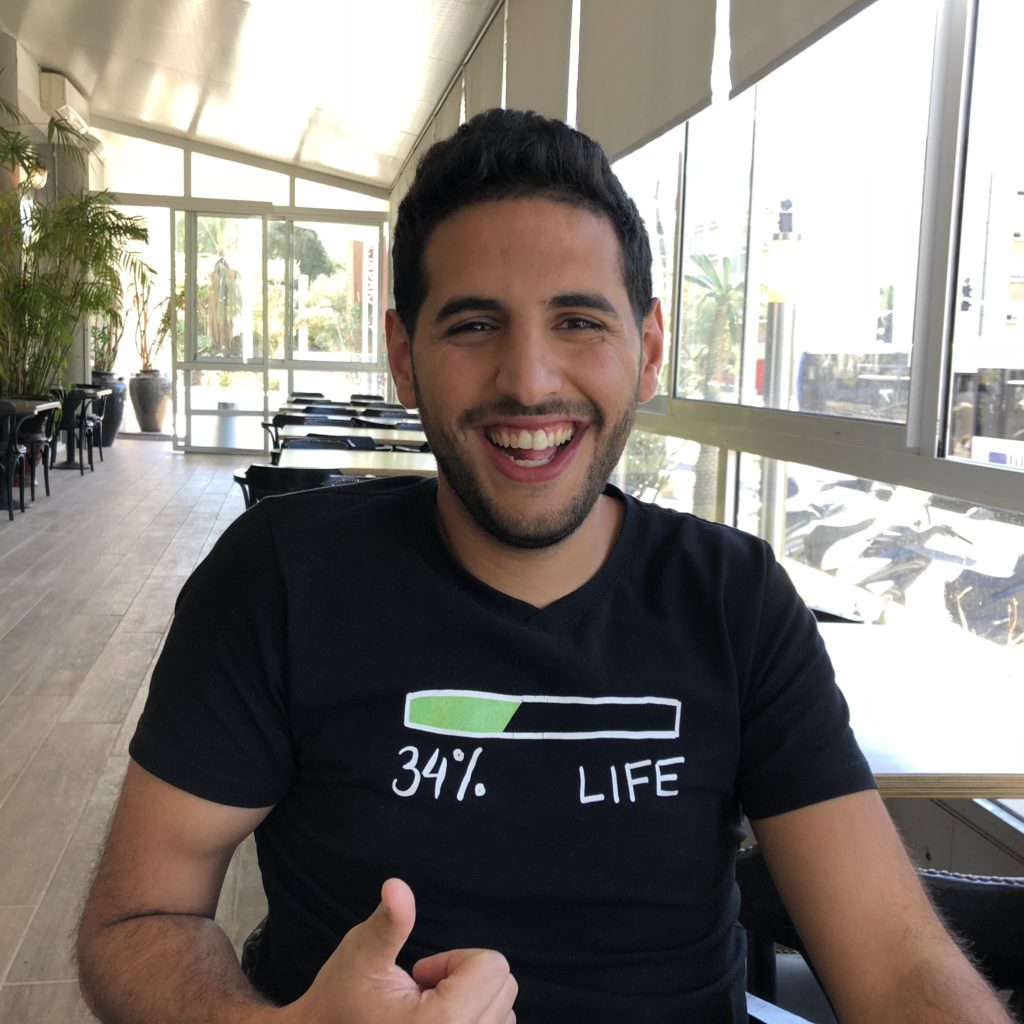2019: Personal Sovereignty
There’s 3 parts to life design. Health, Wealth and Relationships.
Health.
Cut sugar. This damn thing is in everything. It is as toxic as it is available. Even if you go to the gym and eat your greens regularly, you aren’t immune from the effects of sugar on your health. Eating a high-sugar diet can set you up for heart disease, even if you’re otherwise healthy. So, I’ve decided to cut it out pretty much as nearly as possible.
Cut down seed oils. Chronic inflammation is an underlying factor in some of the most common Western diseases, such as cardiovascular disease, cancer, diabetes and arthritis. Studies have also associated a high intake of omega-6 fat (found in seed oils) Western diseases. This is obviously harder, but I try to now eat stuff that has olive oil or natural foods.
Edit: My friend, Meghan O’Hearn pursuing her PhD in nutrition airdropped some knowledge bomb as follow up. Here’s the paper if you’d like to read the source.
Eating clean 101.
EAT fruits, veggies, beans/legumes, nuts/seeds, whole grains, fish, yogurt, fiber, seafood omega-3s, polyunsaturated fats & potassium.
KILL sugar, seed oils, unprocessed red meats, processed meats, sugar-sweetened beverages, glycemic load, trans-fats and sodium.
Eliminate the IPA. This applies to men mostly. The pop-culture is that beer is “harmless”. Turns out IPA has lots of hops - which gives the beer its flavor. They are female flowers of the hop plant and contain high levels of phytoestrogen—a plant estrogen. So, men who drink lot of hoppy beer, like a strong India Pale Ale, “may see some unwanted effects, like man breasts, premature aging, sluggishness, tooth decay, hair loss and a beer belly.”
Stand, walk, jog. I travel for work and life, and I find it hard to have a scheduled workout - instead, I just bake it into whatever I’m doing during the day. Standing over sitting, walking over Uber and jogging over walking. A standing desk is too Silicon Valley-esque for me; but I walk/stand while I take calls. Now it’s a background impulse - I automatically stand up when on a call. Cultivating a habit of standing can impact your physical health in a non-trivial way.
Location agnostic work. I’ve come decide that clean air and water are a prerequisite for where I live. Poor air quality alone can shave off 4.5 years off of your life. This is the reason I’ve try not to not spend more than one week in Delhi in any calendar year. So this means designing work and play around clean air, clean water and a high quality of life; whilst being flexible to new opportunities and working around the visa requirements. Good news is - there’s a whole subculture growing fast on the fringes (check out Nomadlist or Angellist for a start if you’re interested).
Wealth.
Reduce your personal burn rate. An idea that has had incredible impact on my life is to reduce my personal burn rate. Here’s a David Ramsey quote that’s now overquoted but I can’t find a better way of describing this idea:
“We buy things we don't need with money we don't have to impress people we don't like.”
If you can rid yourself of the desire to impress other people and limit the temptation of a lifestyle upgrade each time you make more money (eg., a promotion), you will enjoy freedom that others don’t.
Above is my expert graphical representation of this point.
And if you’re interested in how to build a philosophy around spending time/money in various categories (needs, wants, free joy) you should check out this blogpost by the Four Pillar Freedom.
2. Invest with a barbell strategy. Once you reduce your burn rate, you will have some extra money. Next milestone is finding a new home for it. The barbell strategy is to divide your portfolio into two parts - invest the first (and largest part) into a low risk, long term compounding gains asset class; and the second into a high risk, assymetric upside (lose 1x, win 10x) type asset class (eg., angel investments, bitcoin etc.).
For the first, I picked a low cost index fund (passive investing is hard to outperform even by actively managed funds over the long term). And in the second, picked a couple of early technology bets.
This is Seneca’s Barbell strategy.
Specific picks are best left to individual decision-making — so I’ll skip them here — but if you’re interested in learning more about the barbell strategy, check out this podcast by Tim Ferris or better, Nassim Taleb’s book, Antifragile (blog post here).
3. Seek flow. Controlled risk-taking is the single-most impactful variable to mental health, happiness and wealth - and one that you’re in control of. Risk creates a heightened sense of awareness in your body and mind — keeping us focused on the present. When you’re absorbed in the present, you’re happy. As time goes on, you have to engineer these states of mind actively. If you’re not in the present — you’re either future planning or past regretting — both states of despair.
For instance, let’s talk about purpose at work - as you get better at whatever you’re doing in life, you need to increase the level of difficulty or you’ll stagnate and get bored. As people get older, they get better at work and life but ironically, take fewer risks.
This is the underlying symptom that blows up as mid-life crisis eventually.
4. Build a career moat. The only way to consistently scale how much money you make at work is to build a “career moat.” A career moat is something that creates a defensible set of skills and capabilities that cannot be easily replicated by someone in your same career trajectory. To build a career moat, you have to be good at more than one thing (eg., business and media) and use creative ways to combine those skillsets in the context of business (eg., starting your own consumer brand). Erik Torenberg has a succinct description of a personal moat.
4. Time is everything. Time is the only finite resource we all have and nobody knows how much of it we have. It’s incredible how much time people waste. Good financial health comes with excellent time management. I have come to realize that ruthless prioritization and protecting your time is a habit and a skill - one I hope to get better at in 2019.
Here’s a GREAT way to think about time.
Think of your age as percentage of life completed. Divide your current age by the average lifespan of your gender in your country and multiply it by 100.
Nuseir Yassin from Nas Daily runs a side hustle, a T-shirt brand that PRINTS this number on your t-shirt - to remind you of how much of your life you’ve exhausted already; serving as a daily reminder/motivator to what is important to you. As you can tell, he is 34% old!
Here’s a link to his store if you want to buy one.
Image courtesy: https://www.ourboox.com/books/i-met-nas-daily/
Relationships.
Finding your tribe. Whether it is at work or in personal life, having people who share the same values as you do can dramatically improve the quality of relationships, your work and health. The smaller differences will cease to matter. This year has caused me to identify my values, and seek the people at work and in life who share those values. A few values I’ve come to embrace are truth (over socially fabricated reality), treating time with respect, valuing freedom over status and associating with people who don’t think others have to lose for them to win.
Fewer, stronger relationships. The early years of my 20s were about meeting as many people as possible and juggling several relationships in my network - often unable to do the justice of depth to all of them. I’ve now come to appreciate the joy of nurturing a smaller number of relationships with people I know I want in my life for the long haul — and discovered the joy of compounding effects on relationships over time.
The Five Love Languages. A friend introduced to the 5 love languages classic by Gary Chapman. It outlines five ways to express and experience love that Chapman calls "love languages": receiving gifts, quality time, words of affirmation, acts of service, and physical touch. This totally changed how I look at relationships; how different people perceive love differently; and how you must deliver love in the vehicle that they seek and value - not one that you value.
Image courtesy: https://parralmf.org.au/2015/11/27/the-5-love-languages/
That’s it, folks! I have some exciting stuff coming up in 2019 and can’t wait to share that with y’all!
Happy holidays and hope you enter the new year with unbridled optimism and excitement!












